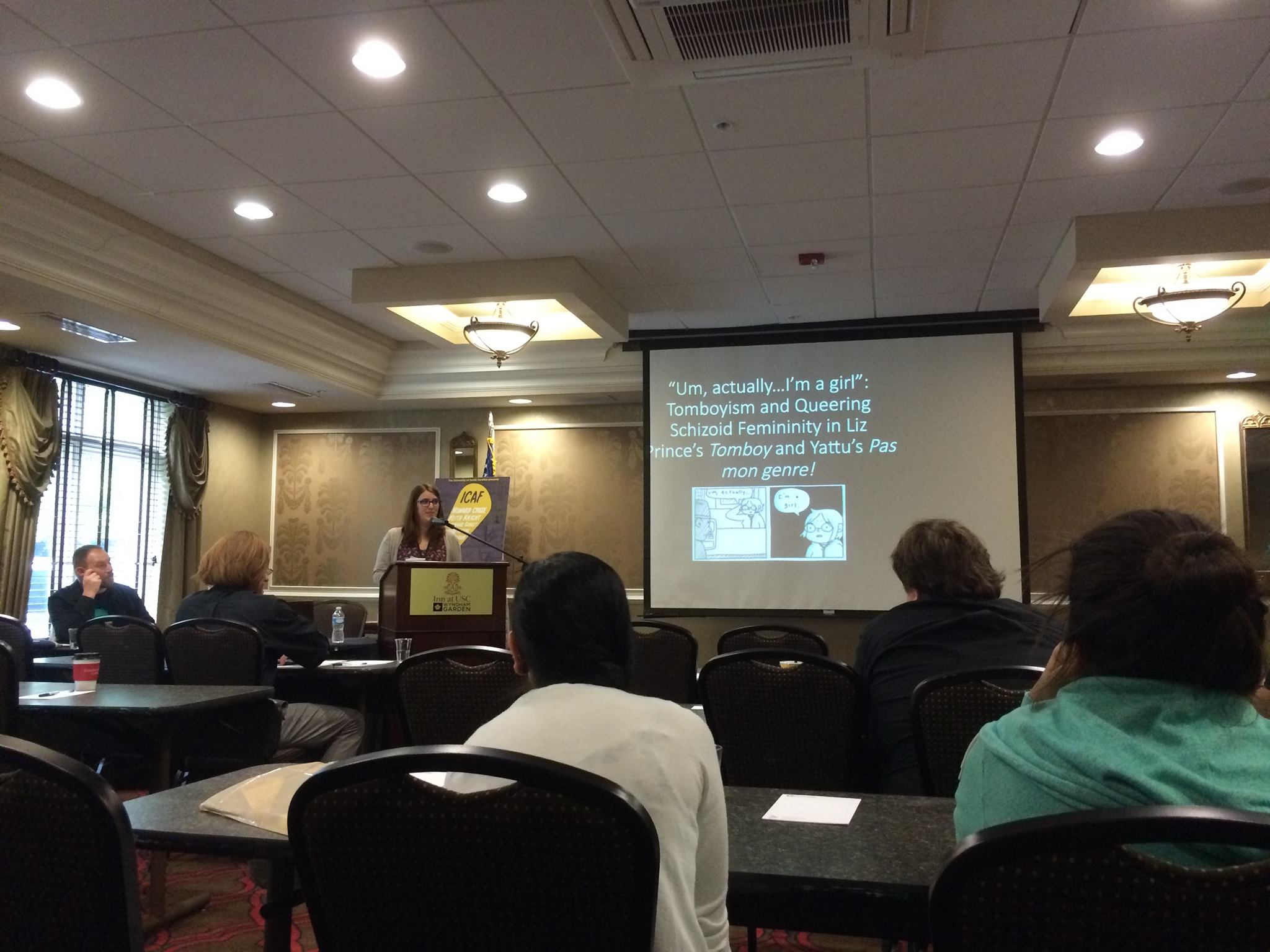As of April 2016, I have fulfilled the course requirements for my PhD program, and I feel as if I am now entering a new exciting, but also confusing, journey. I have much more freedom to decide what I want to research or read about, and more time to focus on what I am really interested in. I am now more in charge (but not in a crazy-wild kind of way –my advisor is still there to guide me!) of building my path as a… Scholar? Academic? These “titles” freak me out, so for now I moved from being a “Graduate Student” to a “(Relatively More) Trained Graduate Student” (RMTGS) will do.
Conveniently (perhaps), the end of my time as a “graduate-student-who-has-to-take-classes-while-also-juggling-with-other-sorts-of-academic-commitments” (or “that time when you forgot the meaning of boredom, Part 1” –yes, I am convinced it will have sequels) ended as the conference season started. By “conference season” I mean the spring, when most conferences tend to occur, a pattern noticed by my very up-and-coming brain (remember, RMTGS!… Although that pattern could be noticed by pretty much…errr… everybody?). So, spring time, with its timid sunshine, flowers blooming, trees burgeoning, and birds singing has been deemed by academics as the perfect time to spend several days in a conference room sipping lukewarm end of the pot coffee or tea, watching people struggle with their PowerPoint slides and hearing them talk in depth about their obscure research. I was one of them this year (twice actually), and I loved it!
Mid-April, I traveled to Columbia, South Carolina to give a presentation called “’Um, actually. . . I’m a girl’: Tomboyism and Queering Schizoid Femininity in Liz Prince’s Tomboy and Yattu’s Pas mon genre!” at the International Comic Arts Festival (ICAF). I had presented at two conferences before, and this one was by far the biggest I have taken part in. It lasted three full days and it allowed me to attend panel discussions about different aspects of comic books and comic studies. One of my favorite talks was about how to use comics as a learning tool in the classroom. I also received feedback on my own presentation: conferencing is very helpful in that regard, especially if you hope to publish a paper about of your presentation afterwards. Something I should mention, perhaps, is how this conference was (and is) open to both established academics and graduate students, which was particularly useful in terms of mentoring. One panel was focused on finding a job after a PhD in comics studies and was composed of tenured and tenure-track professors, but also recent graduates who were in the job market. This panel was the one that resonated the most with me because I am always wondering where my PhD will lead me, and hearing about others’ experiences was very informative. Finally, I also got to listen to talks by comic practitioners, among who was Cece Bell, whose work I appreciate a lot, and actually study. The cherry on top of the cake? The conference was taking place in the city where one of my great friends and former roommate during my MA is currently pursuing her PhD! It was the perfect opportunity for us to catch up after two years apart while eating Southern food.
Mid-May, I flew to Toronto to give a talk entitled “’Of Course, I am a Hero’: Disability as Posthuman Ideal in Cece Bell’s El Deafo” at the Canadian Society for the Study of Comics (CSSC). I knew what to expect because I had already presented there two years ago, when I was still a MA student. It was actually there that I met my current advisor for the first time! (she was the chair of my panel, and we had a little chat about New Mexico, where I was then studying, before my talk). I love going to the CSSC conference because it is the perfect opportunity to meet mostly Canadian, but also international scholars who work in my field of study and whose work I have come across while doing my own research. Also, this conference is partnered with the Toronto Comic Art Festival (TCAF), something that encourages people from outside of academia to come hear academic talks and interact with scholars. For instance, the conference put me in touch with a woman who creates her own comics and wants to share her ideas with me. Bonus, the partnership also means that I got to buy awesome literary comics that are quite rare in St. John’s. I also had the opportunity to get them signed, which in comics language means that I got to have awesome drawings of my favorite artists! Overall, conferencing this spring was a lot of fun, both scholarly and personally.
This is all, for now. Next time I will be writing, it will be from France. I am going there for a “study-cation” In July (that is, I am visiting my family but I also have to keep doing research). We’ll see where that will lead me!
Until then,
~Lauranne
